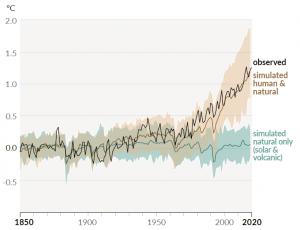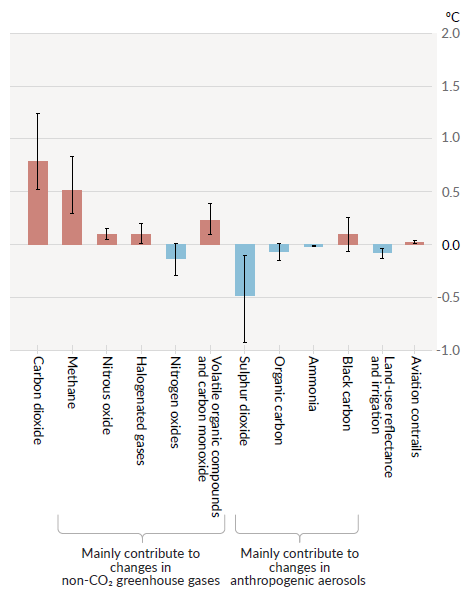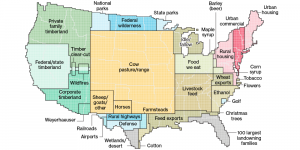
Averting Climate Disaster: Our Analysis of the IPCC Climate Change 2021 Report
On Monday, the UN’s Intergovernmental Panel on Climate Change (IPCC) released its Sixth Assessment Report (AR6) titled Climate Change 2021: The Physical Science Basis. The report reaffirms Seed the Commons’ position that animal exploitation is simultaneously a significant driver of climate change and an important barrier to averting a climate disaster. In fighting against the corporate takeover of food systems and for a transition away from industrial agriculture, our approach has always integrated an animal liberation perspective. Our vision gives an inherent value to the lives of the hundreds of millions of animals killed every day for food. This has led us to uphold agricultural models that are not reliant on animals for food or labor, and over the past years we have played a key role in bringing awareness and interest to the transformative potential of veganic farming.
A GLOBAL CLIMATE EMERGENCY
The Sixth Assessment Report describes the dire consequences of climate change “unless there are immediate, rapid and large-scale reductions in greenhouse gas emissions” and unambiguously places responsibility for a 1.1°C of global warming since 1850-1900 on the emissions of greenhouse gases from human activities. The already-deadly litany of consequences we are experiencing, like record-breaking wildfires, ocean acidification, mass flooding and permafrost thawing will continue amplifying, with no part of the world being spared from disaster.

“Stabilizing the climate will require strong, rapid, and sustained reductions in greenhouse gas emissions, and reaching net zero CO2 emissions. Limiting other greenhouse gases and air pollutants, especially methane, could have benefits both for health and the climate.”
— IPCC Working Group I Co-Chair Panmao Zhai.

METHANE IMBALANCE
While carbon emissions are responsible for most of this warming, the Sixth Assessment Report determines that methane emissions are the second most significant contributor, responsible for more than 0.5°C of the observed warming. The report singles out the livestock industry as the single largest anthropogenic source of methane, responsible for 109 million metric tons of methane annually. Critically important, emissions from the livestock industry exceed the annual imbalance of methane, meaning eliminating this single industry would lead to negative net emissions of methane.

GRAZING LAND OR FORESTS
The full impact of the livestock industry goes far beyond methane emissions. Livestock requires millions of hectares of grazing and pasture lands across the world, in addition to millions of hectares of cropland for animal feed. Much of this land was previously forested or could be afforested. The Sixth Assessment Report highlights reforestation, afforestation and forest management as the carbon dioxide removal method with the largest sequestration potential in the shortest timescale, potentially being effective in just decades.
AVERTING CLIMATE DISASTER
The Sixth Assessment Report confirms what Seed the Commons has been saying for a decade:
- Meat is Inhumane. The livestock industry is not just responsible for the deaths of billions of animals annually, it is also the single largest anthropogenic source of methane, a powerful greenhouse gas and the largest contributor to global warming after carbon dioxide.
- Rewilding is Critical. Reforestation, particularly of land currently being used to graze cattle or grow feed crops, must be one of the principal strategies in achieving carbon neutrality quickly and reversing global warming.
The environmental and climate justice movements have been focused on reducing fossil fuel extraction and emissions for decades. This is now the dominant narrative on how to address our climate emergency. Emissions and land use by the livestock industry are rarely mentioned and more often than not, many otherwise-reputable organizations peddle false and dangerous solutions like “regenerative grazing”. Similarly, the animal liberation and vegan movements have rejected radical food politics, pursuing instead neoliberal solutions like “ethical capitalism” or charity models, instead of organizing towards true systemic solutions.
The IPCC Sixth Assessment Report makes it clear that we no longer have time to lose if we are to avert a climate disaster. Seed the Commons urges a reassessment of priorities.
To avert climate disaster, significant investment must be made to support small veganic farmers and in promoting and rapidly transitioning farmers to sustainable agricultural models, with proportional divestment of subsidies and other public funds from animal agriculture. Seed the Commons and other grassroots organizations that have been ringing the alarm should likewise be supported so we can continue our work of grassroots education, building the veganic movement, and confronting the livestock and related industries.
Seed the Commons/Millahcayotl Association, is a San Francisco-based organization that works to create sustainable and just food systems that are independent of animal exploitation. Founded in 2009 by long-time social justice activists who believed that to address the root causes of injustice, human rights abuses and environmental degradation, we need to look at our food systems, they also wanted to participate in the growing food movement without compromising their animal liberation ethics. Click here to support our work.
